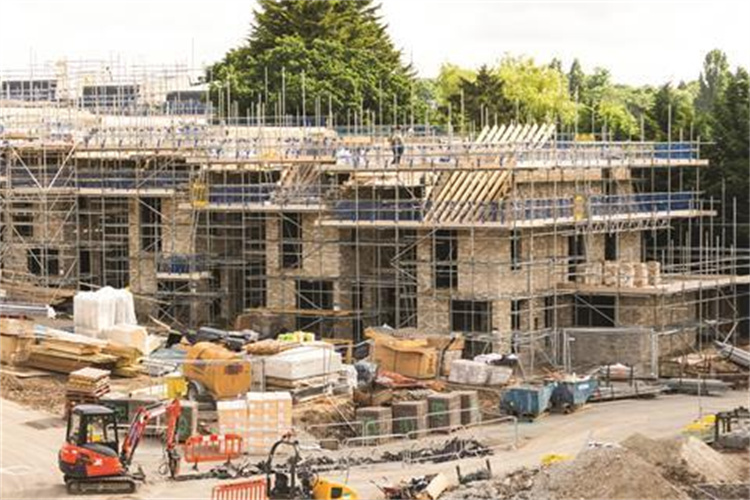Savills data highlights homes supply shortfall, 2022/6/10
2022-06-10

Source: Shutterstock/ J Davidson
Research from Savills has highlighted the growing imbalance between buyer demand and availability of new homes.
The data shows that homebuyer reservations for new homes increased 7% in Q1 2022 compared with the same quarter last year – 41% up on pre-pandemic reservations in Q1 2019.
However, the combination of limited construction materials and slow planning decisions means the supply of new homes is declining.
Researchers found home completions have fallen for the past three consecutive quarters, with only 238,500 new homes being built in the year to Q1 2022 – down 7% from the peak of 255,000 at the same time in 2020.
George Cardale, head of residential development sales at Savills, said: “Bricks, cement and roofing products have all become increasingly difficult for housebuilders to source, as well as being more expensive to produce, due to the rising cost of energy.
“Not only is it increasingly costly for developers to build, but a fall in the number of consents granted since the peak of 2019 is creating intense competition for sites to build on.
“Meanwhile, across the UK, we are seeing an imbalance of buyer demand and the availability of new homes. There are people ready and waiting that are keen to move into their next home but stock continues to be an issue.”
From Savills’ most recent buyer survey of 1,000 participants, 68% said that EPC ratings were important when deciding to buy a home. Through analysis of EPCs and data from HM Land Registry, Savills found that most new builds transacted achieved a grade ‘B’ on their EPCs, compared with a grade ‘C’ or ‘D’ for secondhand homes; and new-build homes would save between 37% and 59% in energy bills – equating to as much as £1,163 a year.
Sophie Tonge, research analyst at Savills, said: “Developers who make the extra effort to go beyond the minimum requirements are likely to better future-proof their developments and entice a larger pool of buyers, who are increasingly motivated by cleaner and cheaper ways of living.”
- *E-mail:
- *Cel:
- *Password:









